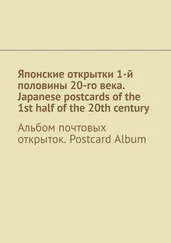Epiphanius Wilson - Japanese Literature
Здесь есть возможность читать онлайн «Epiphanius Wilson - Japanese Literature» — ознакомительный отрывок электронной книги совершенно бесплатно, а после прочтения отрывка купить полную версию. В некоторых случаях можно слушать аудио, скачать через торрент в формате fb2 и присутствует краткое содержание. Жанр: foreign_prose, Языкознание, foreign_antique, на английском языке. Описание произведения, (предисловие) а так же отзывы посетителей доступны на портале библиотеки ЛибКат.
- Название:Japanese Literature
- Автор:
- Жанр:
- Год:неизвестен
- ISBN:нет данных
- Рейтинг книги:3 / 5. Голосов: 1
-
Избранное:Добавить в избранное
- Отзывы:
-
Ваша оценка:
- 60
- 1
- 2
- 3
- 4
- 5
Japanese Literature: краткое содержание, описание и аннотация
Предлагаем к чтению аннотацию, описание, краткое содержание или предисловие (зависит от того, что написал сам автор книги «Japanese Literature»). Если вы не нашли необходимую информацию о книге — напишите в комментариях, мы постараемся отыскать её.
Japanese Literature — читать онлайн ознакомительный отрывок
Ниже представлен текст книги, разбитый по страницам. Система сохранения места последней прочитанной страницы, позволяет с удобством читать онлайн бесплатно книгу «Japanese Literature», без необходимости каждый раз заново искать на чём Вы остановились. Поставьте закладку, и сможете в любой момент перейти на страницу, на которой закончили чтение.
Интервал:
Закладка:
Sadaijin was now summoned before the daïs of the Emperor, and, according to custom, an Imperial gift, a white Ô-Uchiki (grand robe), and a suit of silk vestments were presented to him by a lady. Then proffering his own wine-cup, the Emperor addressed him thus:—
"In the first hair-knot 19 19 Before the crown was placed upon the head at the Gembuk, the hair was gathered up in a conical form from all sides of the head, and then fastened securely in that form with a knot of silken cords of which the color was always purple.
of youth,
Let love that lasts for age be bound!"
This evidently implied an idea of matrimony. Sadaijin feigned surprise and responded:—
"Aye! if the purple 20 20 The color of purple typifies, and is emblematical of, love.
of the cord,
I bound so anxiously, endure!"
He then descended into the Court-yard, and gave expression to his thanks in the same manner in which Genji had previously done. A horse from the Imperial stables and a falcon from the Kurand-Dokoro 21 21 A body of men who resembled "Gentlemen-at-arms," and a part of whose duty it was to attend to the falcons.
were on view in the yard, and were now presented to him. The princes and nobles were all gathered together in front of the grand staircase, and appropriate gifts were also presented to each one of them. Among the crowd baskets and trays of fruits and delicacies were distributed by the Emperor's order, under the direction of Udaiben; and more rice-cakes and other things were given away now than at the Gembuk of the Heir-apparent.
In the evening the young Prince went to the mansion of the Sadaijin, where the espousal with the young daughter of the latter was celebrated with much splendor. The youthfulness of the beautiful boy was well pleasing to Sadaijin; but the bride, who was some years older than he was, and who considered the disparity in their age to be unsuitable, blushed when she thought of it.
Not only was this Sadaijin himself a distinguished personage in the State, but his wife was also the sister of the Emperor by the same mother, the late Empress; and her rank therefore was unequivocal. When to this we add the union of their daughter with Genji, it was easy to understand that the influence of Udaijin, the grandfather of the Heir-apparent, and who therefore seemed likely to attain great power, was not after all of very much moment.
Sadaijin had several children. One of them, who was the issue of his Royal wife, was the Kurand Shiôshiô.
Udaijin was not, for political reasons, on good terms with this family; but nevertheless he did not wish to estrange the youthful Kurand. On the contrary, he endeavored to establish friendly relations with him, as was indeed desirable, and he went so far as to introduce him to his fourth daughter, the younger sister of the Koki-Den.
Genji still resided in the palace, where his society was a source of much pleasure to the Emperor, and he did not take up his abode in a private house. Indeed, his bride, Lady Aoi (Lady Hollyhock), though her position insured her every attention from others, had few charms for him, and the Princess Wistaria much more frequently occupied his thoughts. "How pleasant her society, and how few like her!" he was always thinking; and a hidden bitterness blended with his constant reveries.
The years rolled on, and Genji being now older was no longer allowed to continue his visits to the private rooms of the Princess as before. But the pleasure of overhearing her sweet voice, as its strains flowed occasionally through the curtained casement, and blended with the music of the flute and koto , made him still glad to reside in the Palace. Under these circumstances he seldom visited the home of his bride, sometimes only for a day or two after an absence of five or six at Court.
His father-in-law, however, did not attach much importance to this, on account of his youth; and whenever they did receive a visit from him, pleasant companions were invited to meet him, and various games likely to suit his taste were provided for his entertainment.
In the Palace, Shigeisa, his late mother's quarters, was allotted to him, and those who had waited on her waited on him. The private house, where his grandmother had resided, was beautifully repaired for him by the Shuri Takmi—the Imperial Repairing Committee—in obedience to the wishes of the Emperor. In addition to the original loveliness of the landscape and the noble forest ranges, the basin of the lake was now enlarged, and similar improvements were effected throughout with the greatest pains. "Oh, how delightful would it not be to be in a place like that which such an one as one might choose!" thought Genji within himself.
We may here also note that the name Hikal Genji is said to have been originated by the Corean who examined his physiognomy.
CHAPTER II
Hikal Genji—the name is singularly well known, and is the subject of innumerable remarks and censures. Indeed, he had many intrigues in his lifetime, and most of them are vividly preserved in our memories. He had always striven to keep all these intrigues in the utmost secrecy, and had to appear constantly virtuous. This caution was observed to such an extent that he scarcely accomplished anything really romantic, a fact which Katano-no-Shiôshiô 22 22 A hero of an older fiction, who is represented as the perfect ideal of a gallant.
would have ridiculed.
Even with such jealous watchfulness, secrets easily transpire from one to another; so loquacious is man! Moreover, he had unfortunately from nature a disposition of not appreciating anything within easy reach, but of directing his thought in undesirable quarters, hence sundry improprieties in his career.
Now, it was the season of continuous rain (namely, the month of May), and the Court was keeping a strict Monoimi. 23 23 A fast observed when some remarkable or supernatural event took place, or on the anniversary of days of domestic misfortune.
Genji, who had now been made a Chiûjiô, 24 24 A general of the Imperial Guards.
and who was still continuing his residence in the Imperial Palace, was also confined to his apartments for a considerable length of time. His father-in-law naturally felt for him, and his sons were sent to bear him company. Among these, Kurand Shiôshiô, who was now elevated to the post of Tô-no-Chiûjiô, proved to be the most intimate and interesting companion. He was married to the fourth daughter of the Udaijin, but being a man of lively disposition, he, too, like Genji, did not often resort to the mansion of the bride. When Genji went to the Sadaijin's he was always his favorite associate; they were together in their studies and in their sports, and accompanied each other everywhere. And so all stiffness and formality were dispensed with, and they did not scruple to reveal their secrets to each other.
It was on an evening in the above-mentioned season. Rain was falling drearily. The inhabitants of the Palace had almost all retired, and the apartment of Genji was more than usually still. He was engaged in reading near a lamp, but at length mechanically put his book aside, and began to take out some letters and writings from a bureau which stood on one side of the room. Tô-no-Chiûjiô happened to be present, and Genji soon gathered from his countenance that he was anxious to look over them.
"Yes," said Genji; "some you may see, but there may be others!"
"Those others," retorted Tô-no-Chiûjiô, "are precisely those which I wish to see; ordinary ones, even your humble servant may have received. I only long to look upon those which may have been written by fair hands, when the tender writer had something to complain of, or when in twilight hour she was outpouring all her yearning!"
Читать дальшеИнтервал:
Закладка:
Похожие книги на «Japanese Literature»
Представляем Вашему вниманию похожие книги на «Japanese Literature» списком для выбора. Мы отобрали схожую по названию и смыслу литературу в надежде предоставить читателям больше вариантов отыскать новые, интересные, ещё непрочитанные произведения.
Обсуждение, отзывы о книге «Japanese Literature» и просто собственные мнения читателей. Оставьте ваши комментарии, напишите, что Вы думаете о произведении, его смысле или главных героях. Укажите что конкретно понравилось, а что нет, и почему Вы так считаете.












